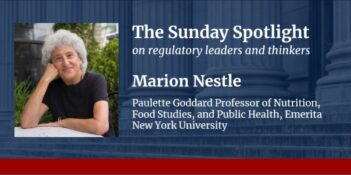
Wisconsin farmers bring lawsuit challenging a state ban on the sale of homemade baked goods.
The old adage says that homemade food is always better than store-bought food. Yet in Wisconsin, home bakers need a commercial-grade kitchen before they can legally sell home-baked cookies, muffins, and cakes. A state statute there reportedly carries a penalty of up to six months in jail or $1,000 in fines for violators.
Now, three Wisconsin farmers are challenging the law under the Wisconsin Constitution. Partnering with the Institute for Justice, the farmers argue that because of the high cost of renting commercial-kitchen space, the law violates Wisconsinites’ equal protection and due process rights. They contend that similarly situated individuals selling homemade popcorn, cider, and canned goods do not face the same regulatory restrictions. Further, they claim that because home-baked goods do not pose any genuine safety concern to the public, there is no legitimate governmental interest supporting the ban.
The Wisconsin law requires food establishment licensing for producers selling processed foods, including dairy products, eggs, meats, and baked food items. It includes an exemption for nonprofits selling baked goods less than twelve days a year. Thus, church, school, and other charity bake sales are not regulated by the law.
The farmers’ lawsuit is not the only recent effort to change the law. Just days before the lawsuit was filed, the State Senate unanimously approved a “Cookie Bill” that would allow home bakers to sell baked goods so long as the products are clearly labeled and the seller receives less than $7,500 per year from food sales. The Cookie Bill is modeled after Wisconsin’s 2010 “Pickle Bill” which permits limited sale of home-canned goods meeting a certain pH value.
Wisconsin’s ban on home-baked goods, deemed by critics as a “war on cookies,” is frequently referred to as an example of the capture of the state food regulators by the commercial food industry. In a recent press release, the Institute for Justice stated that commercial food producers have an interest in lobbying food regulators to protect themselves from competition. “It can’t be a safety issue. It’s got to be political,” reasoned Kriss Marion, one of the farmers bringing the case.
Yet groups supporting the ban argue that the law is not an example of “Big Food” interests squashing small business entrepreneurship. David Schmidt, executive director of the Wisconsin Bakers Association (WBA), claimed that the ban protects the livelihood of small-town, local bakeries working hard to meet high-quality production and safety standards. According to the Association, an overturn of the ban or the passage of the Cookie Bill would threaten “the future of Professional Baking as a skilled trade.” It further claimed that unregulated producers put the public at some greater risk because of the potential for food-borne illness. Fresh-baked products should be produced using proper handling methods and in sanitary conditions “not achieved in most home environments,” the WBA has argued.
The WBA also expressed support for home bakers and decorators “so long as the laws regulating them are no different than licensed retail bakeries.” State law and safety standards “already are the burden of every small business in Wisconsin.” It would not be fair, argued Schmidt, to exempt home bakers from regulation and allow them to “eat away” at local bakeries.
Wisconsin is not the only state where cottage food laws – that is, laws regulating food made in unlicensed kitchens – are being called into question. Food sales at farmers markets and direct-to-consumer retail establishments have increased steeply over the last few years. States around the country are passing a variety of laws regulating what, where, and how much cottage food can be sold. For example, Idaho recently passed a law exempting defined cottage foods from food establishment regulations, but imposing a number of other requirements on cottage foods, including thorough labeling standards and an income cap on home-based food producers. Just last year, Wyoming passed the Food Freedom Act, allowing cottage food producers to sell all foods without regulation so long as they do not contain non-poultry meat and are consumed within a private home.
Some “sharing-economy” Internet and mobile companies are working to bypass these regulations altogether. Homemade, a New York-based food sharing app, makes all transactions “donation-based.” LA-based Foodie Shares markets itself as a “private community.” These companies still intend to change regulations around cottage food sales, and thus they offer another voice in a wide-ranging debate over regulating an ever-changing food production marketplace.



